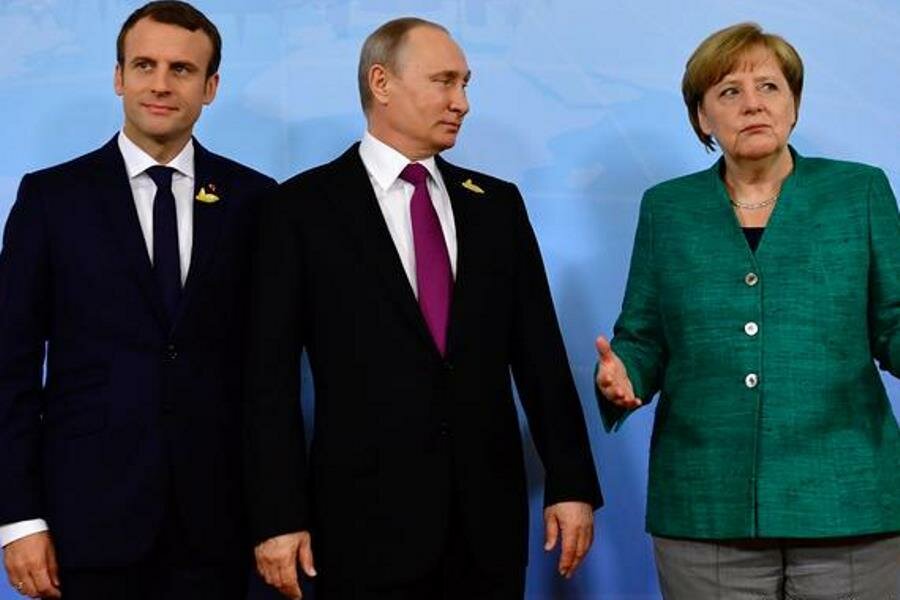Putin, Merkel and Macron discuss nuclear deal, cooperation with Iran

TEHRAN – Russian President Vladimir Putin, German Chancellor Angela Merkel and French President Emmanuel Macron held a phone conversation on Tuesday discussing ways to preserve the 2015 nuclear deal and continuing economic and trade cooperation with Iran.
“Discussing developments related to the Joint Comprehensive Plan of Action on the Iranian nuclear program, the leaders noted the importance of preserving this agreement that is a key factor in maintaining international stability and security. They confirmed the commitment of Russia, France and Germany to continuing mutually beneficial trade and economic cooperation with Iran,” Kremlin said in a statement.
On May 8, Iran announced a partial withdrawal from some aspects of the pact, saying that the country would no longer adhere to some of the limits on its nuclear activities. It also threatened to step up uranium enrichment if it was not shielded from the sanctions’ effects within 60 days.
Under the JCPOA, Iran agreed to put caps on its nuclear work in exchange for termination of economic and financial sanctions. However, U.S. President Donald Trump unilaterally pulled Washington out of the nuclear deal in May 2018 and ordered reimposition of sanctions against Iran. The first round of sanctions went into force on August 6 and the second round, which targets Iran’s oil exports and banks, were snapped back on November 4.
Also, on April 22 the U.S. announced that Washington has decided not to extend waivers allowing major importers to continue buying oil from Iran. The waivers ended on May 2.
On January 31, France, Germany and Britain announced the creation of INSTEX, a special purpose vehicle aimed at facilitating legitimate trade between European economic operators and Iran.
Moscow has repeatedly expressed support for preserving the JCPOA.
Putin and Chinese President Xi Jinping issued a joint statement in June 2018 saying, “Russia and China will exert maximum efforts to preserve the Joint Comprehensive Plan of Action (JCPOA) on Iran’s nuclear program, and consider that it is important to protect trade cooperation with Tehran from unilateral sanctions.”
NA/PA
Leave a Comment